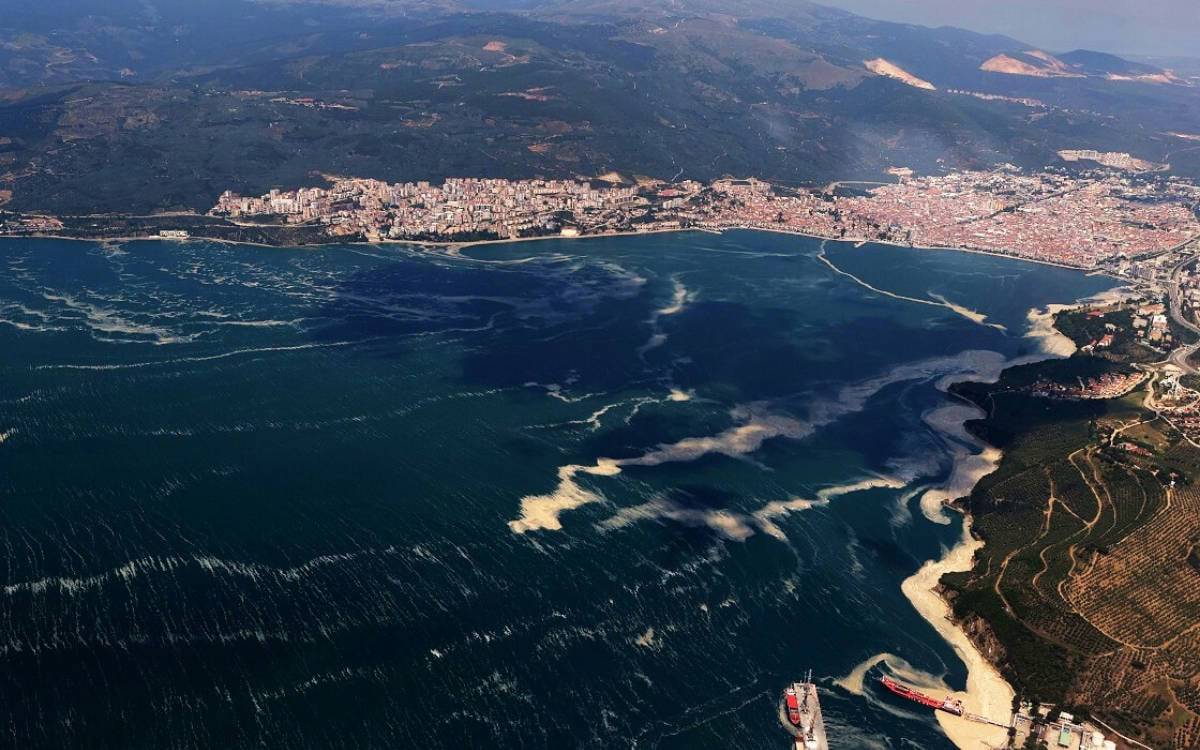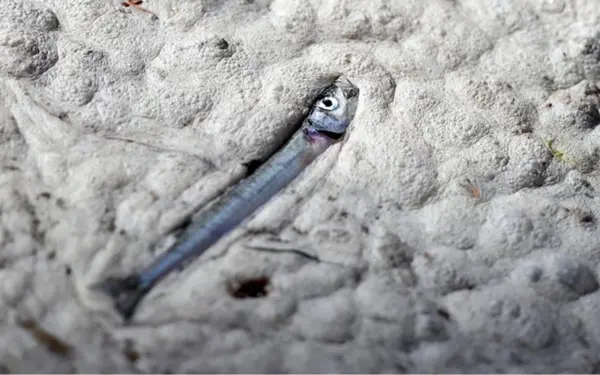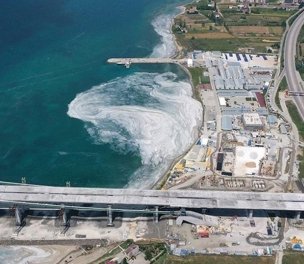The latest findings from a research expedition conducted by the Middle East Technical University’s (METU) Institute of Marine Sciences reveal severe oxygen depletion in Marmara Sea, an inland sea located in northwestern Turkey.
The research, carried out using the institute's vessel, Bilim 2, underscores the critical state of the sea's oxygen levels, which experts warn could lead to catastrophic environmental consequences.
Prof. Dr. Mustafa Yücel, deputy director of the institute, said the oxygen deficiency is particularly significant beyond the first 30 meters of its depth.
Yücel described the sea as being in a "comatose state," highlighting that in the eastern regions of the Marmara Sea, at depths of 150 to 200 meters, there is almost no oxygen left. "Oxygen levels beyond the first 30 meters have dropped to what we call the 'hypoxic threshold,' a level too low for fish to survive," he explained.
Warming waters and pollution
The situation is exacerbated by rising sea temperatures, which Yücel noted are at record highs. This warming, combined with increasing pollution, is creating a vicious cycle where less oxygen is dissolved in the water, further deteriorating the sea's health.
The professor emphasized the growing issue of nitrogen and phosphorus pollution, which is becoming increasingly problematic in the Marmara Sea.
Another significant concern raised by the research is the potential formation of hydrogen sulfide, a toxic gas that could severely impact the marine ecosystem and public health. As oxygen levels decrease, nitrate levels also diminish, which Yücel warned could lead to the collapse of the food chain.
"This is a disaster in the making," he said, cautioning that if hydrogen sulfide starts accumulating on the seafloor and rises to the surface, it could result in a phenomenon similar to the 2021 mucilage crisis, which devastated marine life, tourism, and fisheries in the region.
Yücel stressed the urgency of taking preventive measures, warning that if the current trends continue, the eastern Marmara could deplete its nitrate reserves within the next four to five years. While hydrogen sulfide has not yet formed in the Marmara Sea outside of the Gulf of İzmit, the trajectory of the last three years suggests that the situation could worsen rapidly without intervention. (TY/VK)









